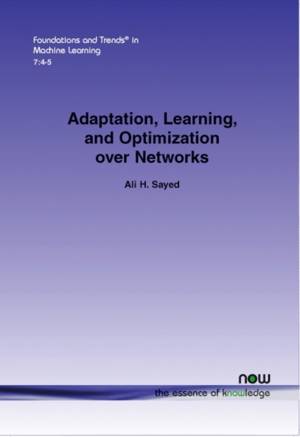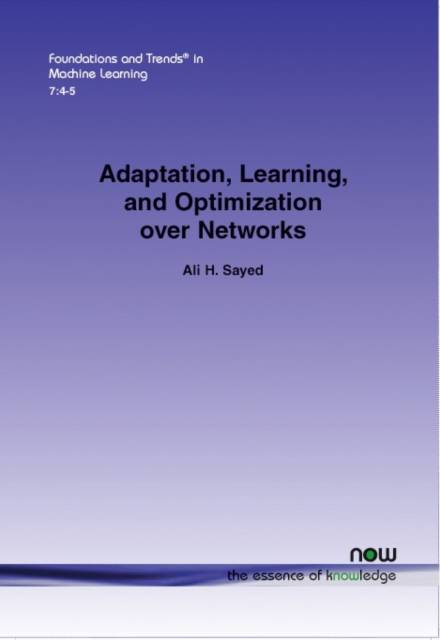
- Retrait gratuit dans votre magasin Club
- 7.000.000 titres dans notre catalogue
- Payer en toute sécurité
- Toujours un magasin près de chez vous
- Retrait gratuit dans votre magasin Club
- 7.000.0000 titres dans notre catalogue
- Payer en toute sécurité
- Toujours un magasin près de chez vous
Description
Adaptation, Learning, and Optimization over Networks deals with the topic of information processing over graphs. The presentation is largely self-contained and covers results that relate to the analysis and design of multi-agent networks for the distributed solution of optimization, adaptation, and learning problems from streaming data through localized interactions among agents. The results derived in this monograph are useful in comparing network topologies against each other, and in comparing networked solutions against centralized or batch implementations. There are many good reasons for the peaked interest in distributed implementations, especially in this day and age when the word "network" has become commonplace whether one is referring to social networks, power networks, transportation networks, biological networks, or other types of networks. Some of these reasons have to do with the benefits of cooperation in terms of improved performance and improved resilience to failure. Other reasons deal with privacy and secrecy considerations where agents may not be comfortable sharing their data with remote fusion centers. In other situations, the data may already be available in dispersed locations, as happens with cloud computing. One may also be interested in learning through data mining from big data sets. Motivated by these considerations, Adaptation, Learning, and Optimization over Networks examines the limits of performance of distributed solutions and discusses procedures that help bring forth their potential more fully. Adaptation, Learning, and Optimization over Networks adopts a useful statistical framework and derives performance results that elucidate the mean-square stability, convergence, and steady-state behavior of the learning networks. At the same time, the monograph illustrates how distributed processing over graphs gives rise to some revealing phenomena due to the coupling effect among the agents. These phenomena are discussed in the context of adaptive networks, along with examples from a variety of areas including distributed sensing, intrusion detection, distributed estimation, online adaptation, network system theory, and machine learning.
Spécifications
Parties prenantes
- Auteur(s) :
- Editeur:
Contenu
- Nombre de pages :
- 518
- Langue:
- Anglais
- Collection :
- Tome:
- n° 23
Caractéristiques
- EAN:
- 9781601988508
- Date de parution :
- 25-07-14
- Format:
- Livre broché
- Format numérique:
- Trade paperback (VS)
- Dimensions :
- 156 mm x 234 mm
- Poids :
- 716 g

Les avis
Nous publions uniquement les avis qui respectent les conditions requises. Consultez nos conditions pour les avis.






